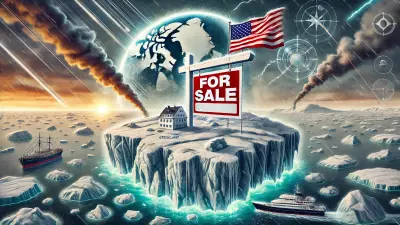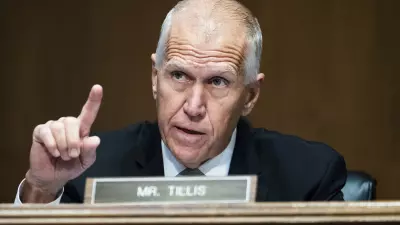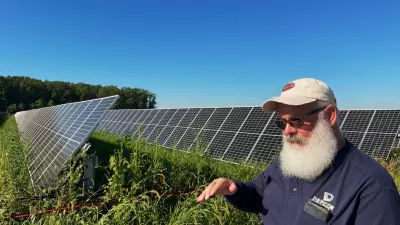It’s not just the United States eying Greenland these days. As Arctic waters continue to melt, Russia and China are also asserting their roles at the pole.

President Trump’s Inauguration speech omitted any mention of Greenland.
Yet Greenland is a much bigger security concern long term than Panama (Our treaty with Panama already allows the U.S. to intervene militarily to keep the canal open). The defense community has been discussing Greenland for years.
I think the game is now afoot.
Since 2007, passage through the Arctic has been possible for part of the year. The Russian side is now passable sometimes from late June until November. Global warming is expected to make passage available year-round in the near future, particularly with the help of icebreakers.
Greenland is strategically located between Canada and Russia. Travel through the Arctic greatly reduces travel time for many of the world’s shipping routes. It will be crucial for the U.S. in a time of war.
The “Great Game” for the Arctic is underway
China has been taking advantage of this and now ships a portion of its oil imports through the Arctic when it can, a route that is faster and avoids Houthi attacks around the Suez Canal. China has also entered into agreements with Russia regarding passage through the Arctic. China now describes itself as a “near-Arctic power,” much to the dismay of the U.S. Beijing clearly does not want to be excluded from the Arctic party being hosted by 7 NATO members and Russia.
The Chinese, which have no native need for icebreakers, are now building their 5th and are planning their first nuclear-powered icebreaker.
Russia has 41 icebreakers, 12 of which are nuclear-powered.
The U.S. has only two that can operate in the Arctic, both of which were out of service for some time last year. None are nuclear-powered.
Some now believe global warming will allow year-round passage through the Arctic as early as 2050. China fully intends to be playing in this arena and has said exactly that.
Amidst changing conditions in the Arctic, Greenland has no choice but to be controlled by one of the three superpowers.
And Greenland knows this.
Greenland weighs its options
The New York Times reported that Greenland’s Prime Minister Múte Egede said: “The reality is we are going to work with the U.S. – yesterday, today and tomorrow. We have to be very smart on how we act. … The power struggles between the superpowers are rising and are now knocking on our door.”
Greenland knows that if it declares independence, it loses NATO protection (which is through the U.S. in any event), and its only option would be to ally with the U.S. in some form. President Trump certainly won’t defend it for free. When Denmark fell to the Germans in World War II, it was the U.S. that protected Greenland, then and during the Cold War.
Denmark signaled last week that it didn’t really care anymore and that the issue of independence was up to the people of Greenland. Indeed, this would represent a significant cost savings to Denmark as it currently provides both economic and military aid to Greenland while receiving nothing in return.
Democratic leaders need to pick a lane here. Some on the progressive left are already complaining that this is just a land grab against a defenseless native people. Perhaps that position is partly true; it also ignores geopolitical reality.
Greenland will, in fact, be aligned with one of China, Russia, or the U.S., as Prime Minister Egede recognizes. One of the three will grab it.
Sure, Greenland says it isn’t for sale, but that is just a pre-negotiation tactic to get a better price. Even if President Trump offered to pay each resident $2 million, the cost would still be only $100 billion. Inexpensive compared to the $5.5 trillion we spent on Covid. Billions in capital would also pour into the country.
None of this is necessarily good for a native people or culture, but there really is no choice here. And certainly, it is better than declaring independence and having the Russians invade, as the Russians are wont to do.
The real question is, “Do you want to be a possession of China, Russia, or the U.S.?”
The goal is negotiating the best package you can get, both short-term and long-term. A good leader would, in addition to immediate payments, get something set up akin to a special needs trust (used for personal injury awards to minors in the U.S. to prevent the parents from spending it all in the first 6 months) to provide ongoing support (like free education) to the descendants of native peoples as part of any package.
I suspect that there is something in the works, which is why it didn’t come up in Trump’s inaugural speech. Note that when his administration fired the head of the Coast Guard, which operates America’s icebreakers, a stated reason was dropping the ball on icebreakers.
This is an unfair reason, especially given that the U.S. did enter into an agreement last year with Canada and Finland to build more icebreakers.
Yet, it is the Democrats’ fault for never talking about national defense issues. That’s because Democrats act like defense is above the pay grade of their voters, even though rural voters talk about defense on a daily basis.
Trump taps into that and exploits it.
But rather than going down the path of complaining about how unfair all of this is to Greenland, Democrats should be trying to make some lemonade. What about getting statehood for Puerto Rico in exchange for supporting bringing Greenland into the fold?
Never waste a crisis.







